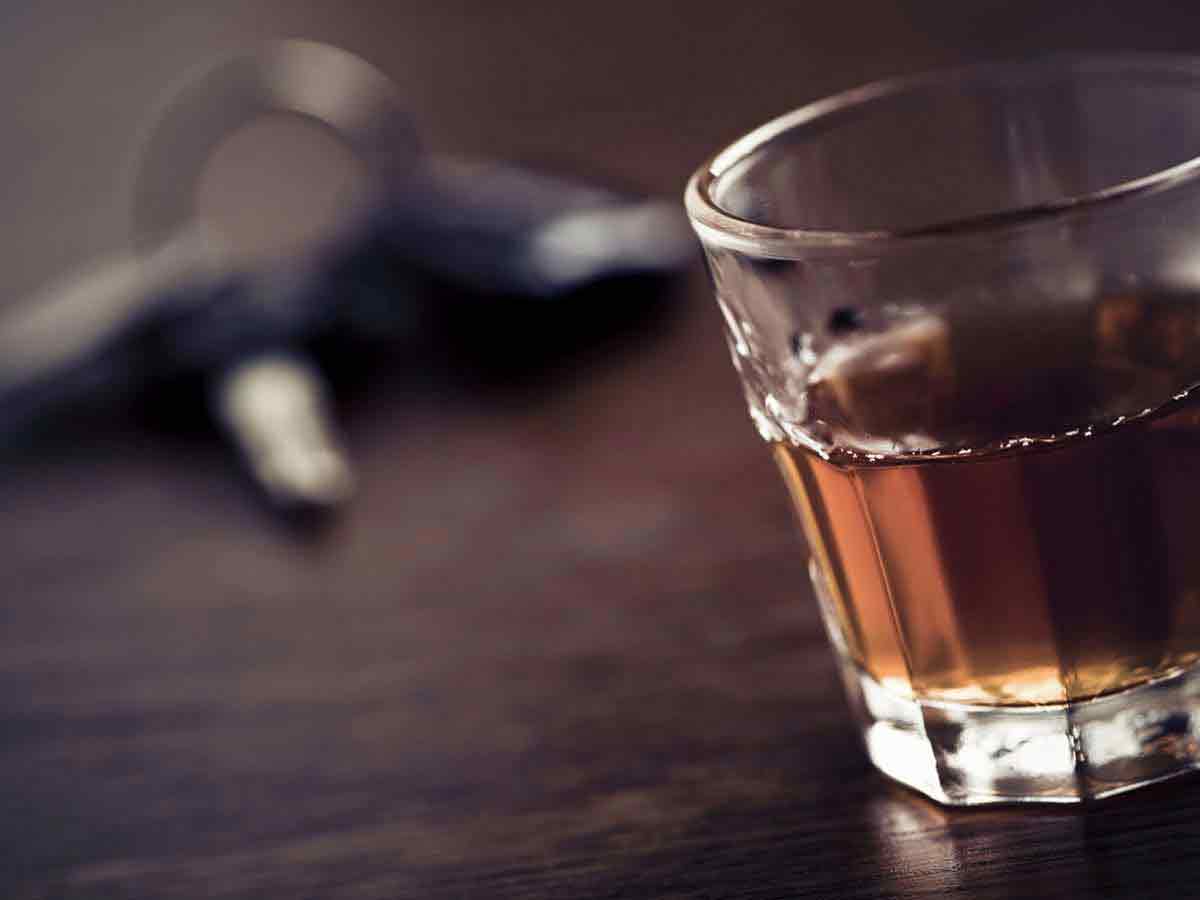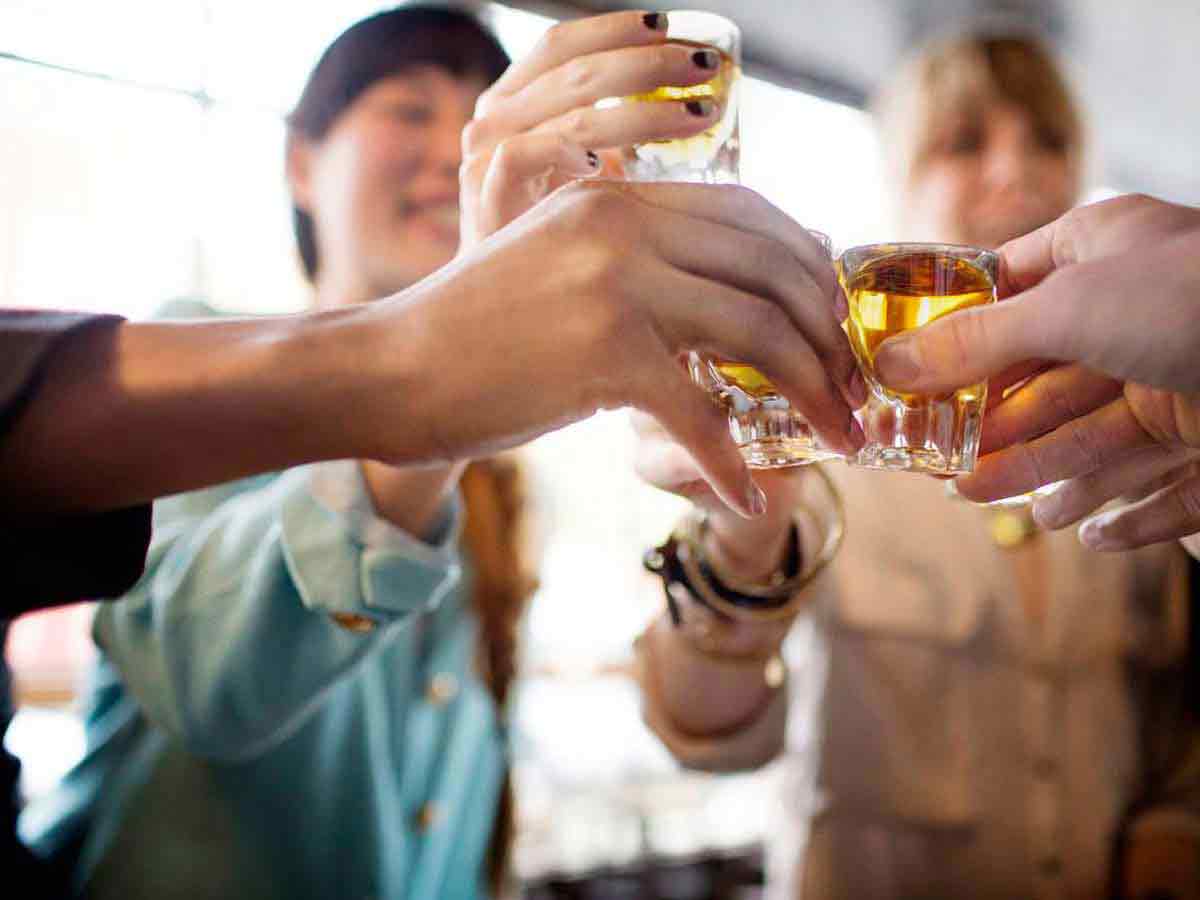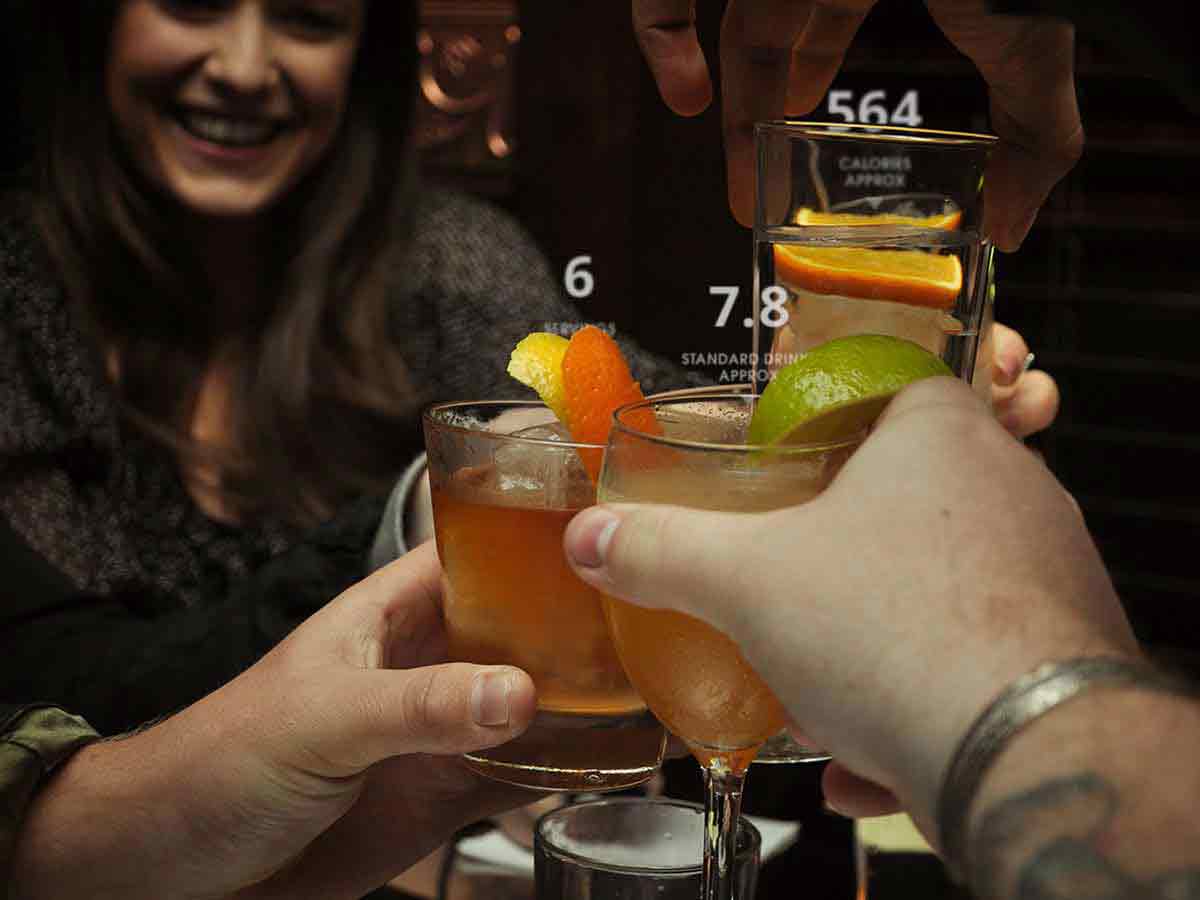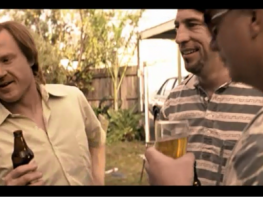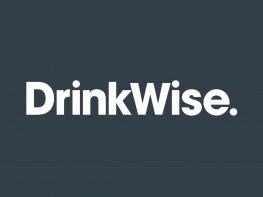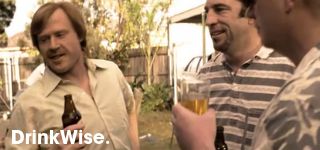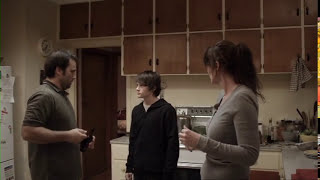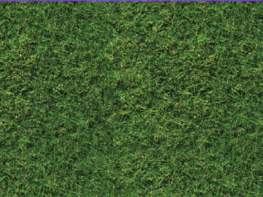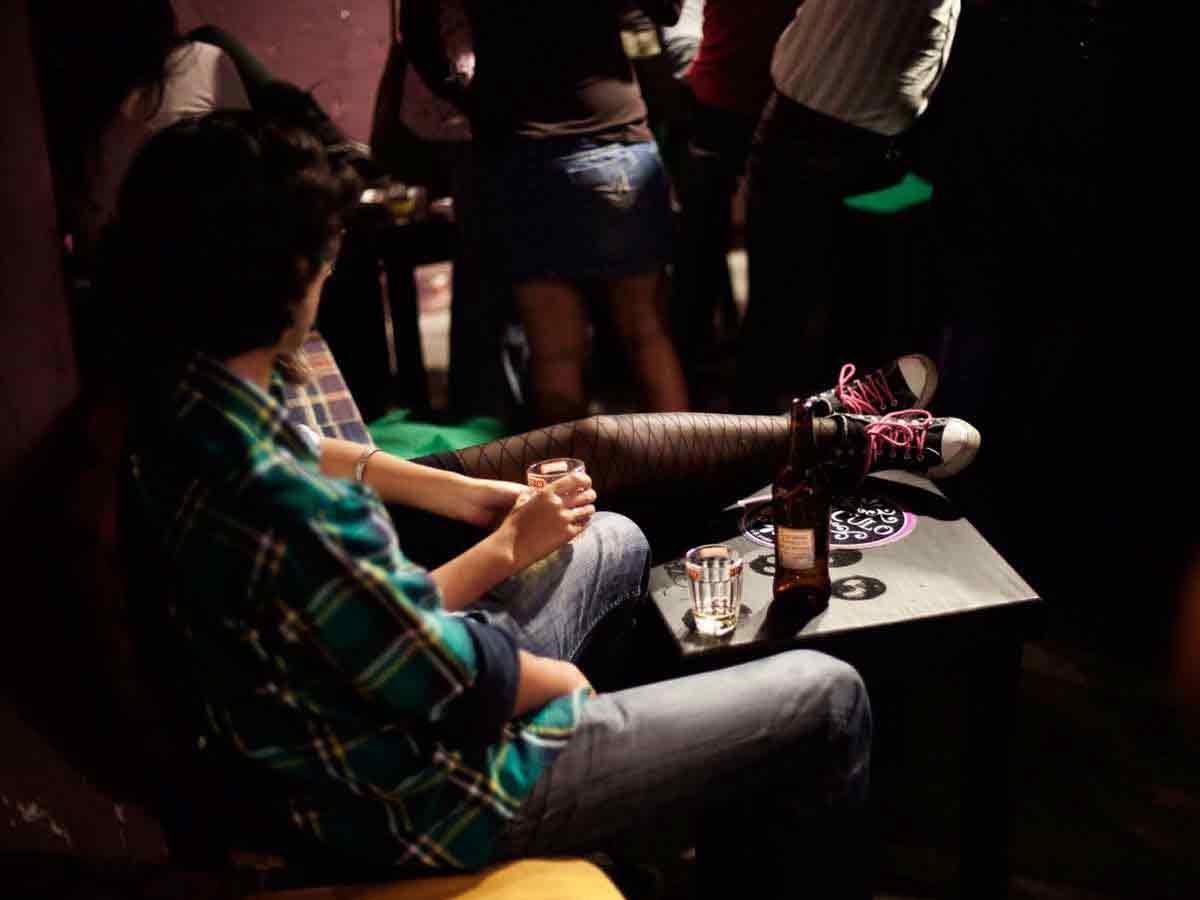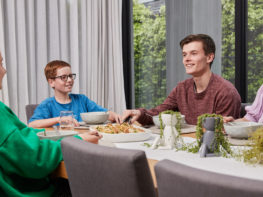You know what’s great to hear? Most Australian parents (89%)1 aren’t supplying their underage teenagers with alcohol and the majority of underage teenagers in Australia are choosing not to drink alcohol (69%).2 What’s not so great to hear? Of those teenagers who are drinking alcohol, 36.1% said their parents were the main source of alcohol supply.3 That’s why DrinkWise is continuing to remind parents that when it comes to underage teenagers drinking alcohol It’s okay to say nay.
What do the experts say?
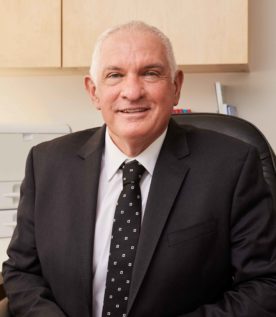 Renowned adolescent psychologist, Dr Michael Carr-Gregg (pictured left) and medical health expert Dr Andrew Rochford have both endorsed the DrinkWise It’s okay to say nay campaign, lending their voices to raise awareness amongst parents of teenagers that the majority (89%) of parents aren’t supplying their underage teenagers with alcohol.
Renowned adolescent psychologist, Dr Michael Carr-Gregg (pictured left) and medical health expert Dr Andrew Rochford have both endorsed the DrinkWise It’s okay to say nay campaign, lending their voices to raise awareness amongst parents of teenagers that the majority (89%) of parents aren’t supplying their underage teenagers with alcohol.
According to Dr Carr-Gregg It’s okay to say nay is such an important public health campaign as it gives clear and unambiguous advice to parents – just say no to giving your kids alcohol.
“From a psychological perspective, alcohol can impact teenagers in four main ways:
- The key developmental task of making friends. Alcohol can really disrupt that process, quite often putting them in a situation where they’re hanging out with young people who are more prone to take risks. Therefore, they will be more prone to take risks. The research shows that following serves of alcohol teenagers are more likely to report binge drinking, experience alcohol-related harm such as accidents, blackouts, be involved in fights or problematic drinking in their future adolescent years.4
- The impact on school. We know that underage kids who drink alcohol don’t do as well academically.
- We know that alcohol causes huge problems for teenagers. They’re much more likely to have depression, anxiety and conflict.
- And lastly, it impacts on their very ability to answer the questions: Who am I? Am I normal? And where am I going?”
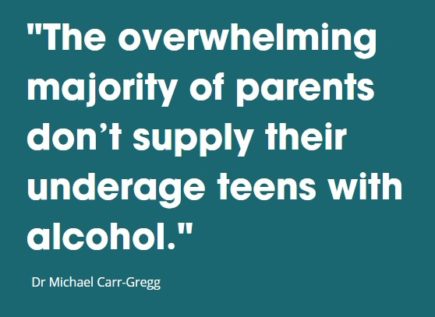 “The medical and psychological effects of alcohol on underage teenagers are detrimental to their school life and mental health and are a serious disadvantage to their development.”
“The medical and psychological effects of alcohol on underage teenagers are detrimental to their school life and mental health and are a serious disadvantage to their development.”
“This It’s okay to say nay campaign highlights that most parents are doing the right thing and not supplying their underage teens with alcohol. We all remember the first DrinkWise ad with the young man getting the beer out of the fridge for his father, which helped parents understand the influence their behaviour has on their children’s attitudes towards alcohol and the impact their role modelling can have on their kids. This campaign helps to continue that conversation. It helps parents with their internal narrative when it comes to making this decision and reminds them of the important role they play in setting boundaries, being role models and ‘influencers’ in their children’s lives.”
“My advice to parents is to start the conversation around alcohol early and have it often so you can help your underage teenagers make the smart choice to abstain from drinking. As parents we shouldn’t be giving our kids any alcohol – we need to be consistently saying no,” said Dr Carr-Gregg.
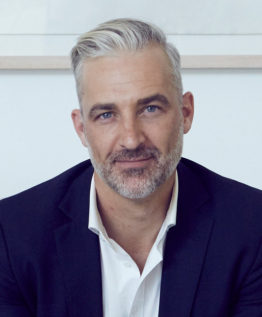 Dr Rochford (pictured left) agrees. “We know that teenagers want definitive boundaries set around alcohol and we know that the decision to not supply alcohol to underage teenagers in the long-term is the right one for a developing teenager – so it’s best to just say no – or in this case – nay.”
Dr Rochford (pictured left) agrees. “We know that teenagers want definitive boundaries set around alcohol and we know that the decision to not supply alcohol to underage teenagers in the long-term is the right one for a developing teenager – so it’s best to just say no – or in this case – nay.”
“While it’s easy to see a child’s body growing during their teenage years, it’s not as obvious that their brain is growing too. Throughout their teens and into their twenties, their brain continues to grow and form. The frontal lobe and hippocampus – the areas of the brain that are associated with motivation, impulse control and addiction are going through the most dramatic growth while you’re a teenager. Drinking alcohol while this growth is happening can disrupt your child’s brain development and even damage their brain.”
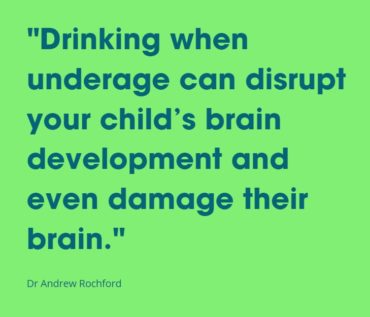 “As parents we do have it tough. We’re competing for our kids’ attention with friends, devices, and outside influences beyond our control – but we all want the best for our kids. The DrinkWise It’s okay to say nay campaign reminds parents that we can’t always control everything in our teenagers’ lives – but the one thing we can do is set boundaries when it comes to alcohol and be confident that not giving our teenagers alcohol is the right decision.”
“As parents we do have it tough. We’re competing for our kids’ attention with friends, devices, and outside influences beyond our control – but we all want the best for our kids. The DrinkWise It’s okay to say nay campaign reminds parents that we can’t always control everything in our teenagers’ lives – but the one thing we can do is set boundaries when it comes to alcohol and be confident that not giving our teenagers alcohol is the right decision.”
What do other parents and teenagers say?
Catherine is a parent to Harrison (pictured below), Millie and Fletcher. Together with her husband they’ve made the choice (like the majority of other Australian parents) to not supply alcohol to their children when they are underage.
“My husband and I both have health backgrounds so we’re aware of the harm that alcohol can cause on a developing brain. For us the choice was easy to say no to providing alcohol to our kids. It is reassuring to know that we’re not the only ones and that the majority of parents are making the decision to not give their kids alcohol.”
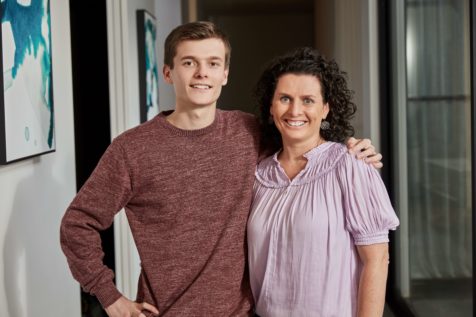 “It was important for our family to have the conversation with our kids early and not only have that conversation once but a conversation that you build on over time,” said Catherine
“It was important for our family to have the conversation with our kids early and not only have that conversation once but a conversation that you build on over time,” said Catherine
Harrison agrees with his mum, “I’m really glad that we had those conversations and set those boundaries as it was the right decision for me. The ability to be in a group and say no is becoming easier and easier with people understanding other people’s views and that’s really important.”
DrinkWise Chief Executive Officer
DrinkWise DrinkWise Chief Executive Officer Simon Strahan acknowledged that while figures show parents supplying their children with alcohol is on the decline, there is more to be done to reduce harm.
“We’ve seen a significant increase in underage teenagers abstaining from alcohol over the past twenty years and while that is pleasing, it is worrying that some Australians still think that underaged teenagers having an occasional drink doesn’t put their health at risk. We know that abstaining from alcohol when underage helps protect teenagers, so we want to reassure parents that not supplying alcohol is the right thing to do. We also want to remind parents that the overwhelming majority of other parents don’t supply their kids with alcohol– so they can be confident in saying no – and that the overwhelming majority of teenagers don’t drink so they can have that conversation with their kids and help them make the smart choice.
“Ongoing education is crucial to discouraging underage drinking and helping parents understand their capacity to set boundaries and be positive role models, as this is pivotal to generational change when it comes to alcohol,“ said Mr Strahan.
Backed by research
As an evidence-based organisation, DrinkWise relies on key independent research and clinical advice to underpin our campaigns and programs. It’s okay to say nay was guided by experts in research, public health, medicine and social marketing, in addition to being developed and tested with parents and underage teenagers. The following insights have informed the 2024 campaign:
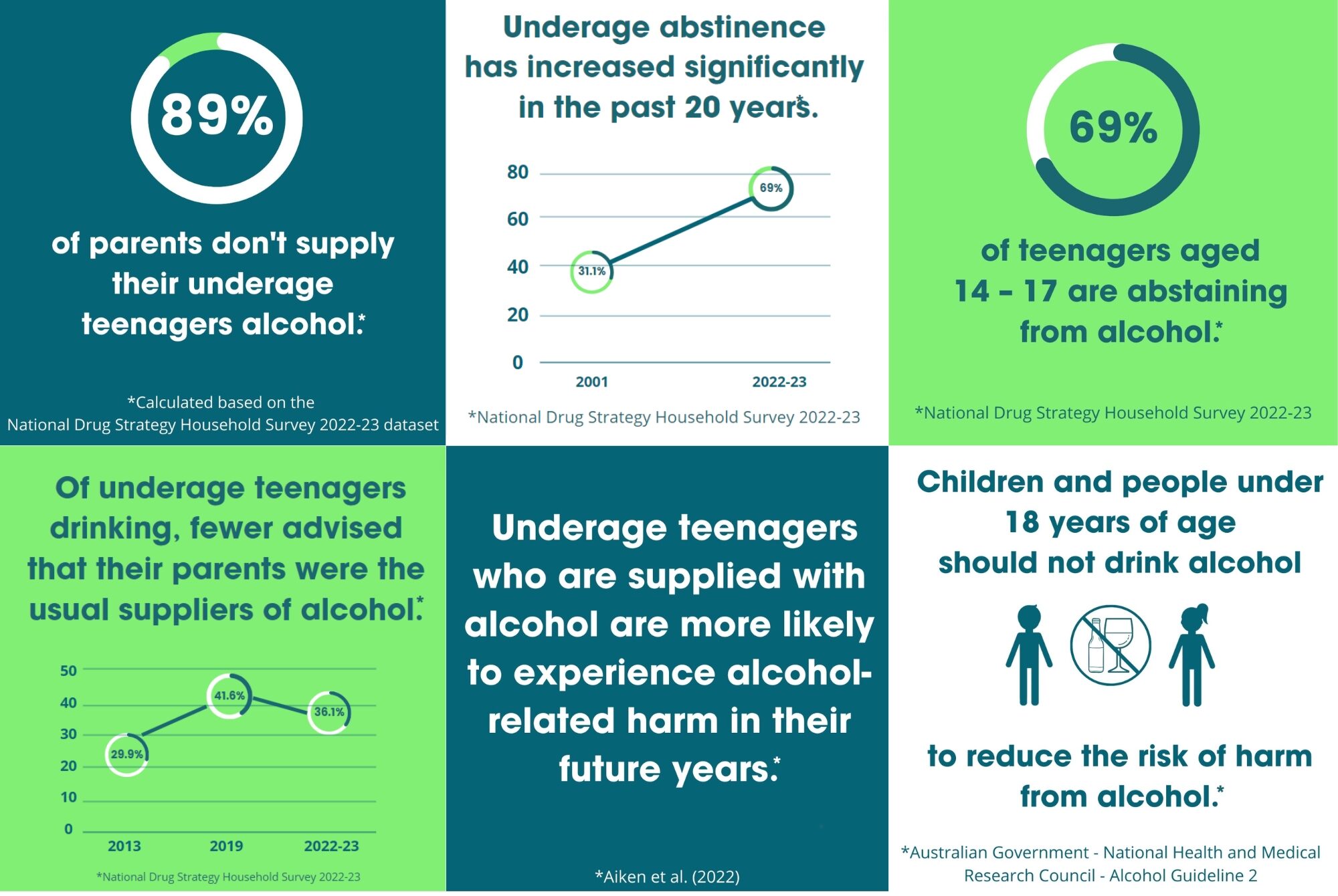
Initially, the Behavioural Insights Team was commissioned to independently conduct research on the effectiveness of messages in influencing parents to not supply alcohol to their underage children. The research followed a three-phased approach:
- Qualitative interviews with teenagers exploring minors’ experiences with parental supply of alcohol.
- User-testing of selected messages with parents and teenagers.
- Randomised online trial with over 1,000 parents to test the effectiveness of two messages (parent norms vs teen norms) on parents’ intentions to supply alcohol to their teenagers.
By listening to the Australian parents we found:
- Parents reported lower intentions to supply alcohol to their children when they saw social norms messaging that most other Australian parents don’t supply alcohol to their underage teenagers.
- Parents felt the message resonated and agreed with the content – and importantly – felt capable to act on the message.
These findings and insights shaped the behaviourally-informed messaging behind It’s okay to say nay.
Evaluation
To test attitudinal and behavioural changes following the November 2022 launch of the parental supply campaign, It’s okay to say nay, DrinkWise conducted independent campaign tracking studies in 2023. Results indicate that the campaign is resonating with parents. Some of the significant attitudinal and behavioural changes amongst parents following the launch include:

Most importantly: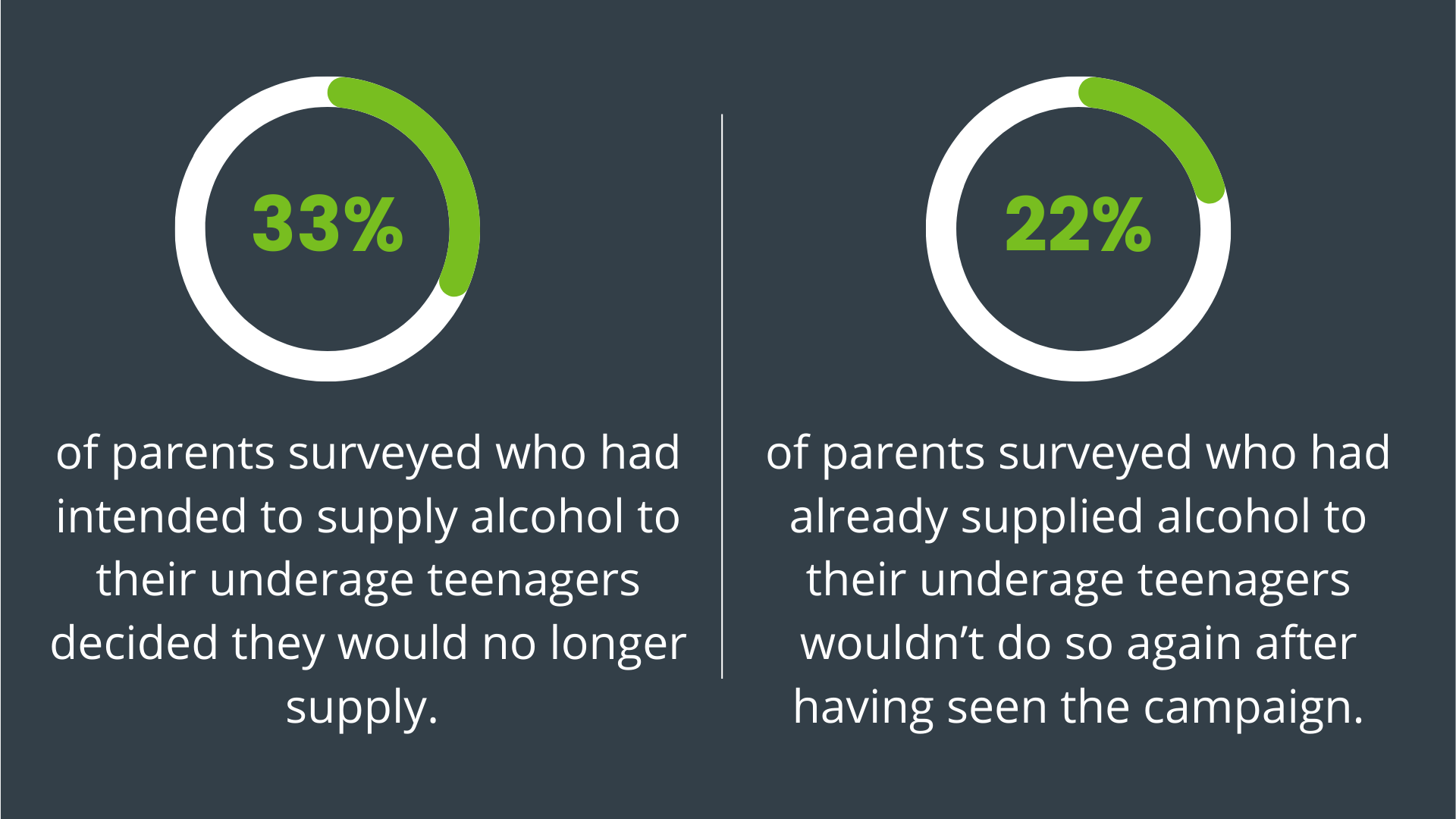
The campaign
It’s okay to say nay was first launched nationally in November 2022. The campaign materials have been updated to reflect the most recent statistics from the Australian Institute of Health & Welfare’s (AIHW) National Drug Strategy Household Survey (NDSHS) 2022-2023. Ongoing television, radio, digital and social media advertising will help to ensure these important educational messages reach parents of teenagers aged 14-17 across Australia.
Television
Radio
Digital
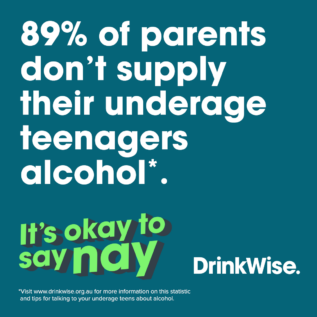
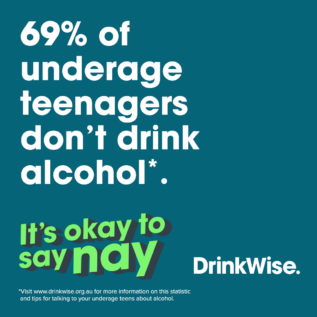
Ongoing education is critical
Since 2005, DrinkWise campaigns have enabled parents to become more conscious about the role they play in displaying responsible behaviours around alcohol. By positioning parents as role models and ‘influencers’ in their children’s lives, the campaigns have held a mirror up to parents’ behaviours, allowing them to make responsible decisions in terms of consumption around kids. Education is critical and DrinkWise is committed to working with parents to help look after the next generation.
More information
The following resources may help you say nay to underage teenage drinking and plan to have a conversation with your teenager:
- Talking to your teen about alcohol
- Developing a consistent approach to teen drinking with your partner
- Is supplying alcohol to teens legal?
- Setting family rules around alcohol
- Is your drinking influencing your kids?
- DrinkWise campaigns for parents
- Alcohol and your health – DrinkWise body health tool
- Dr Andrew Rochford – Kids and Alcohol video
- Dr Andrew Rochford – Delaying underage teenage drinking
References
- In consultation with AIHW, “89% of parents don’t supply their underage teenagers alcohol” was calculated based on the National Drug Strategy Household Survey 2022-23 dataset, similar to Chan et. al.’s (2017) paper, the statistic reflects norms around parental supply of alcohol to minors and was calculated using a) the percentage of 14-17 year olds who drank alcohol in the past 12 months (see Table 4.6) and b) of those 14-17 year olds who drank alcohol in the past 12 months, the percentage who reported their usual supply of alcohol were from parents (see Table 4.10).
- In 2022-23, 69% of underage teenagers (14-17 years) abstained from drinking alcohol in the previous 12 months (National Drug Strategy Household Survey, 2022-23).
(NB: this statistic is an updated calculation of underage abstinence and consumption rates as recommended by AIHW and in line with the 2020 Australian Alcohol Guidelines.) - 36.1% of 14-17 year olds who drink alcohol reported their parents were their usual source of alcohol supply in 2022-23 (National Drug Strategy Household Survey, 2022-23).
- Aiken, A., Chan, G., Yuen, W. et al. (2022). Trajectories of parental and peer supply of alcohol in adolescence and associations with later alcohol consumption and harms: A prospective cohort study. Drug and Alcohol Dependence, 237, 109533.

